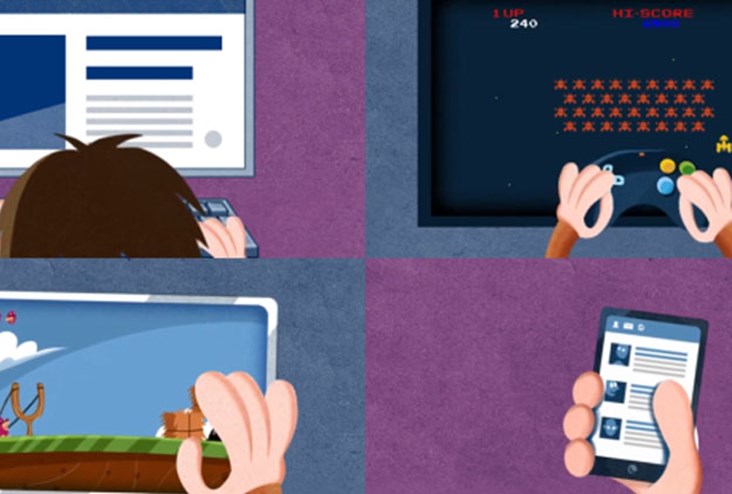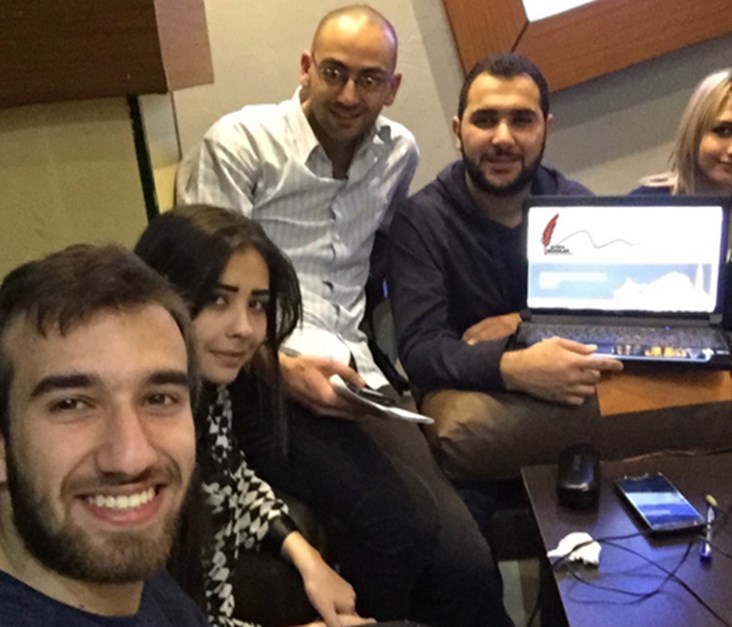Alwasaet Dominates E-Learning in Saudi Arabia
Back
Since it launched in 2010, Alwasaet has risen to become Saudi Arabia’s leading e-learning platform, providing educational content as well as solutions/software for governmental and academic institutions.
To date, Alwasaet has developed over 200 diverse educational products from immersive 3D virtual reality experiences to games, animations, and e-books. The company’s portfolio includes more than 15 businesses with such big names as Saudi Aramco and the King Abdulaziz City for Science and Technology (KACST), among others.
Abdulaziz Alqurashi, co-founder and Business Development Manager at Alwasaet, said the company is entirely focused on B2B products for now, but it plans to diversify its income by creating B2C products (currently in the development phase). A new office in the UAE will open soon, and another office in Qatar will follow by the first quarter of 2016.
Rising to the Challenges of E-Learning
According to Alqurashi, when Alwasaet was first launched, the market was very challenging. But the situation of e-learning has improved today.
“In this relatively new domain, several things continue to stand in our way: ill-defined client requirements, ambiguous expectations from technology-based learning (either too high or too low), as well as competitors that are more interested in winning bids in any way possible, even if it means bidding extremely low in price – and a lot of the times low in value as well,” he said.
E-learning companies also have to contend with the slow decision-making process within government institutions, or with big clients’ difficult terms and conditions.
“Furthermore, in the Arab world, we do not currently foster a culture that encourages self-learning,” said Alqurashi.
Before he embarked on his e-learning venture, Alqurashi was a medical doctor. A few years earlier, he and a friend were trying to set up an electronic residency program for physicians, and they realized they would need a full team. Their experience with digital media eventually led to Alwasaet.
According to Alqurashi, the shift to e-learning was a natural extension of his medical practice. Digital solutions – like medical practice – should solve pains, he explained: “They both stem from the fact that I like to engage in activities to help alleviate agony and improve wellbeing and quality of life in general.”
The Road to E-Learning Goes Through Schools
Having established the need for quality e-learning content, the team at Alwasaet seeks to create an engaging experience both pedagogically and aesthetically.
On the pedagogic level, the emphasis is on customized and adaptive learning, as opposed to the one-size-fits-all model of massive online open courses (MOOCs) like Rwaq in the region.
Accordingly, Alwasaet seeks to build partnerships with academic institutions and teachers. Because they interact the most with students on a daily basis, schools and teachers can provide great insights about the usability and effectiveness of e-learning products. For now, most partner schools are in Saudi Arabia and the GCC, but Alqurashi is confident they will soon be able to approach more institutions globally.
Such partnerships help improve the value and quality of Alwasaet’s products, said Alqurashi: “We try to educate our clients about what we do and keep them informed of the updates in the industry, not just because we like to share and give back to the community, but also because an informed client increases the odds of creating higher impact products and projects.”
To align academic establishments with its vision, Alwasaet provides them with cloud-based platforms that are scalable, durable, reliable, and take into consideration the connectivity limitations of some users. The low percentage of tech-savvy teachers is sometimes an obstacle to advances in e-learning, explained Alqurashi.
Local Products, Global Standards
In parallel with its academic partnerships, Alwasaet also works on enhancing its team’s internal capacities to continuously develop quality products.
When it comes to designing an attractive look and UX, Alwasaet employs a team of creative illustrators and animators that raise the bar of its productions in terms of aesthetic appeal. However, sourcing top talent locally can be challenging because e-learning is a new field. “Apart from the technical requirements for any job, we demand passion for improving education – which makes it even more difficult,” said Alqurashi.
Especially when working on first-time projects, or when specific competencies are not readily available in the regional market, the team partners with international experts and partners. According to Alqurashi, this helps put them ahead of the regional curve. “It doesn’t matter to us where a person resides, if they have something to add to Alwasaet, we want to work with them,” he said.
Often, the stage for new projects will be set internally by creating sample screens, videos, etc., before any contact is made with freelancers or subcontractors. “We do that to ensure there are certain quality standards that are met (both pedagogically and technically) and to reach a common understanding with the client about what is expected from us,” said Alqurashi.
In one case, for example, Alwasaet gathered an international team of scriptwriters to help craft engaging and enriching scripts. At the other end of the circuit, highly trained translators ensure that the quality of the Arabic scripts matched that of the English ones.
To make this collaborative model work optimally, the team embraces a lean approach. Technology tools like Dropbox, Evernote, Gotomeeting, and the Google suite of products make telecommuting with team member around the world easier.
You can watch examples of animation work developed by Alwasaet in the video below:
Science - Molecules & Atoms - 13 - 14yrs from Alwasaet on Vimeo.
See related: Lamsa Creates Arabic Content for Children, with Children
Latest Business
Intelligence Report














